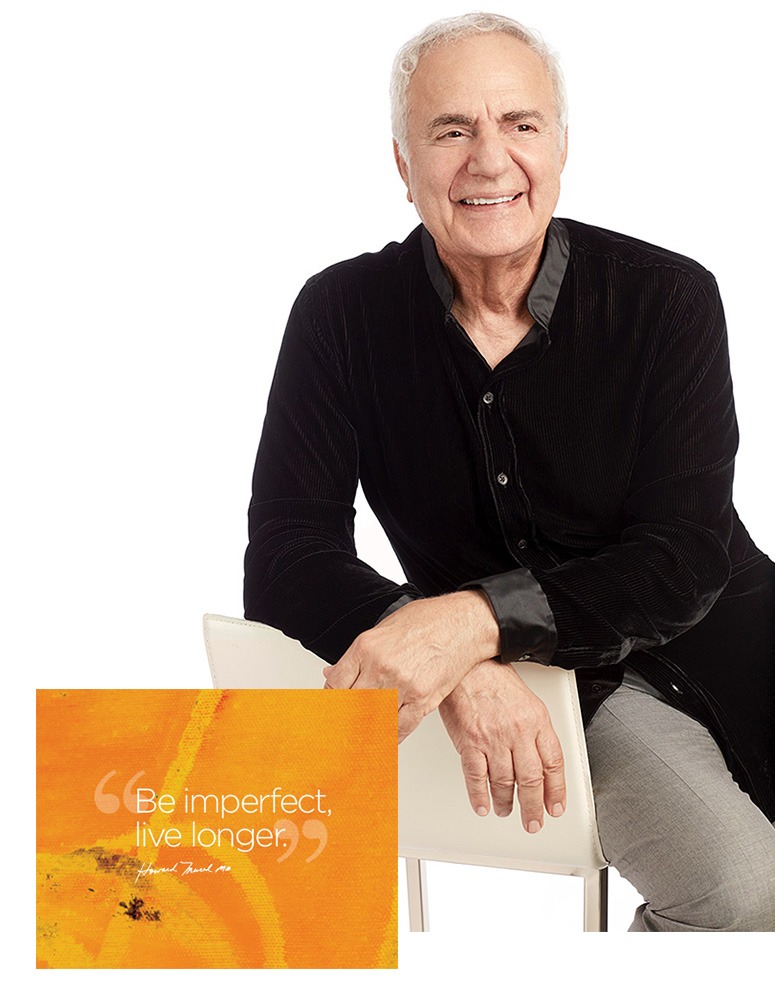Modern Wellness for Fighting Cancer
On Tuesday, June 11, I will be making a presentation at the Simms/Mann UCLA Center for Integrative Oncology. My topic will be Cultural Stress, Nutrition, Hydration, and Cancer. How are all of these related?
Two words: cellular hydration. Although there are more than 300 theories on aging, the pathway common to all of them—from degenerative diseases like Alzheimer’s, cancer, and cardiovascular illness to wrinkles and loss of sensory acuity—is water loss. Age, disease, free radicals, stress, and inflammation attack the cell membrane, compromising its ability to keep water—and other beneficial elements—in and toxins out. The cell becomes susceptible to a host of illnesses. It can even die.
But maintaining cell health isn’t complicated, or expensive. In fact, it’s as simple as the following four-part strategy.
#1: Skincare. Your skin is literally the first line of defense against environmental onslaught, and is intricately connected to other biological systems. Harvard University researchers have described a neuro-immuno-cutaneous-endocrine network, or N.I.C.E., confirming that the function of the nerves, the immune system, the actions and reactions taking place in our glands, and the health of our skin are interrelated. If there is malfunction in one aspect of this network, other areas will be affected, too. We do ourselves a disservice when we attempt to think of—and treat—our body as a collection of isolated parts. So, to maintain a strong first line of defense, moisturize; wear sunscreen and other physical protection such as a hat and long sleeves; and feed your skin from the inside-out. Or, in other words:
#2: Eat your water. Food is medicine—perhaps the most important medicine for maintaining health and preventing disease. And a key part of nutrition is getting enough water in a form your body can use. When you eat water-rich foods you retain more of the water you ingest (rather than drinking it, which too often flows right out) and you also consume other nutrients that build strong cell membranes. These membranes are what keep the water—and other beneficial elements—inside the cell—and also keep toxins out.
#3: Exercise. Exercise builds muscle, which is 70% water. Fat, on the other hand, is only 10% water. When you exercise, you literally increase your body’s capacity to store water. Exercise is also a great stress reliever, which helps with recommendation #4:
#4: Reduce your stress. Stress—particularly today’s all-pervasive Cultural Stress—can overtax all of our physiological systems unless we take active steps to manage it. In fact, stress has been named the leading causal factor in most, if not all, of the diseases that kill us—from high blood pressure and heart disease to the compromised immune system that plays a pivotal role in cancer. Eating right, exercising, and getting enough sleep are all important stress reducers. A fourth stress-reduction strategy is “reconnecting with your inner toddler.” You remember her: she’s the one for whom every day was a new adventure; who played with abandon; who willingly took risks and didn’t care what anyone else thought. How can you reconnect with her? One of the best ways is to play: engage in any activity—singing, dancing, painting, socializing with friends, anything—for the sheer fun of it. And don’t let your own expectations—or the perceived judgments of others—steal your joy in the experience.
Another strategy I developed for my patients is clinically proven to calm the central nervous system and build inner strength. In a 30-day study, patients who reflected daily on one or more of my Insight cards improved their blood pressure, heart rate, and perceived stress scores. These 11 cards contain simple statements designed to promote emotional wellbeing, such as “Be thrilled with who you are,” “Beware of creating your own stress,” and “Be imperfect; live longer!” These Insights not only provide immediate relief, I believe they boost the immune system in ways that will help you live longer, healthier, and happier. And isn’t that what we all want?
If you live in the Los Angeles area, I invite you to attend my lecture from 7 p.m. to 9 p.m. at the Ronald Reagan UCLA Medical Center Auditorium, B Level, Room B130, 757 Westwood Plaza, Los Angeles, CA 90095. But even if you’re not able to be present, you can benefit from the information I intend to share.
To your health!
